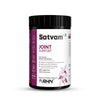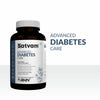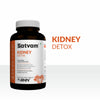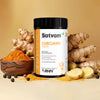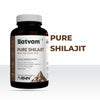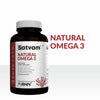Diagnosis And Kidney Support Supplement
During the initial diagnosis of your kidney disease, the doctor discusses your family and personal history with you. The discussion of your personal history will include questions about whether you have been suffering from high blood pressure or taking medication that might influence the function of your kidney. In addition, the questions may also include if you have recently experienced any changes in your urinary habits or if any of your family members suffer from kidney diseases.Your healthcare provider may suggest a Kidney Support Supplement for your condition.
After this, your doctor will perform a physical exam on you to check if there is any problem with your blood vessels or heart. In addition to kidney disease diagnosis, some tests and procedures may also be needed to determine the severity of your condition (stage). It includes:
Blood test - Kidney function tests measure the amount of waste products in your blood, including urea and creatinine.
Urine test - A urine sample analysis can reveal irregularities that suggest kidney failure and assist in determining the underlying cause of chronic kidney disease.
Imaging tests - To evaluate the shape and size of your kidneys, your doctor might use ultrasound. In some situations, different imaging tests might be used.
Testing kidney tissue by removing a sample
A kidney biopsy, which entails taking a sample of kidney tissue, may be advised by your doctor. A long, thin needle is inserted through your skin and into your kidney during a kidney biopsy procedure under local anaesthesia. The biopsy sample is sent to a lab for analysis in order to help diagnose the kidney issue you are having.
Treatment Through Kidney Support Supplement
Some kidney diseases can be treated, depending on the underlying cause, with the help of kidney support vitamins or other types of kidney support supplement. However, chronic kidney disease is frequently incurable.
Treatment typically consists of decreasing complications, controlling symptoms, and slowing the disease's progression. You may need treatment for end-stage kidney disease if you are suffering from severe damage.
Treating the root cause
Your doctor will try to control or slow down the cause of your disease. However, even after an underlying condition, such as diabetes mellitus or high blood pressure, has been managed, the damage can still worsen.
Let us explore the treatment medications generally suggested by doctors.
Also Read ,
Drugs for High blood pressure
High blood pressure can get worse in kidney disease patients. Angiotensin-converting enzyme (ACE) inhibitors or angiotensin II receptor blockers are frequently prescribed by doctors to reduce blood pressure and protect kidney function.
You may require frequent blood tests to track your condition because high blood pressure medications have the potential to change electrolyte levels and initially reduce kidney function. A low-salt diet and a hydration pill (diuretic) may also be suggested by your doctor.
Drugs to Reduce Swelling
Fluid retention is common in chronic kidney disease patients. High blood pressure and leg swelling may result from this condition. The fluid balance in your body can be preserved with the aid of drugs referred to as diuretics.
Drugs used to cure anaemia
Supplements of erythropoietin, sometimes with additional iron, aid in producing more red blood cells. This could lessen anaemia-related weakness and exhaustion.
Pharmaceuticals that lower cholesterol
To reduce your cholesterol, your doctor may advise taking drugs called statins. High amounts of bad cholesterol are common in people with chronic kidney disease, which can raise their risk of heart disease.
Protect your bones
Vitamin D and calcium supplements can reduce your risk of fracture and help prevent weak bones. To reduce the amount of phosphate in your blood and shield your blood vessels from damage by calcium deposits, you may also take a drug referred to as a phosphate binder. (calcification).
Eat a meal low in protein to reduce waste products in your blood
Your kidneys must remove waste products from your blood as your body breaks down the protein from meals. Your doctor may advise consuming less protein to lessen the strain on your kidneys. A certified dietitian can offer advice on consuming less protein while maintaining a healthy diet. Satvam offers some of the best supplements for kidney support, which can help you get relief from your symptoms.
Treatment for end-stage
You have end-stage kidney disease if they become completely or nearly completely unable to remove waste and fluid on their own. At that point, dialysis or a kidney transplant is required.
Dialysis
When your kidneys are unable to filter out waste and excess fluid from your blood, dialysis can do it for you. A machine filters waste and extra fluid from your blood during hemodialysis.
Organ transplant
A healthy kidney from a donor is surgically implanted into your body during a kidney donation. Both living and deceased donors are able to provide kidneys for transplant.
Dietary suggestions may include the following, depending on your circumstances, renal function, and general health:
Avoid items that have added sodium
By avoiding products with added salt, such as many convenience foods like frozen dinners, canned soups, and fast food, you can reduce the amount of sodium you consume daily. Salty snack foods, canned vegetables, processed meats and cheeses are examples of additional salt-containing foods.
Pick meals with less potassium
Bananas, oranges, potatoes, spinach, and tomatoes are examples of meals high in potassium. Apples, cabbage, onions, green beans, grapes, and strawberries are a few examples of low-potassium foods. You should generally avoid salt substitutes if you have kidney failure because many of them contain potassium.
Eat a minimum quantity of protein
Your certified dietitian will determine how much protein you require daily and will offer suggestions based on that figure. Lean meats, eggs, milk, cheese, and legumes are examples of high-protein foods. Foods low in protein include fruits, vegetables, bread, and cereals.



